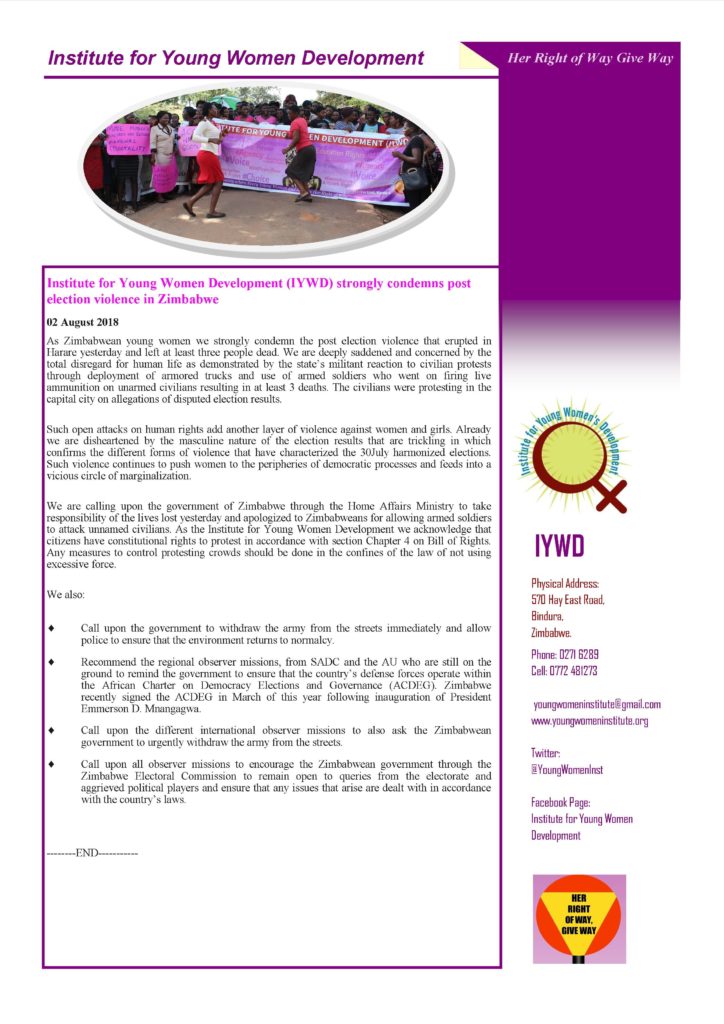Zimbabwe police stormed the headquarters of the opposition Movement for Democratic Change (MDC) in the capital Harare on Thursday and detained 16 people after sealing off the building earlier, a Reuters witness said.

Party agents at a polling station in Harare – with their observation materials, notebooks and identifying accreditation – watch as citizens vote in the July 30 elections in Zimbabwe. NDI
Security forces opened fire on opposition protesters, killing at least three people, days after the country’s first election since longtime leader Robert Mugabe’s ouster. Protesters claimed ruling party officials may be delaying election results (HT:CFR) to steal the election.
Zimbabwean lawyer Alex T Magaisa (below) said “only the president has the power to deploy the army.”
“He should be condemning the excessive use of force against civilians,” Euronews adds.

Dr Alex Magaisa
“Deployment of troops reveals the uncomfortable truth that, eight months after Mugabe was ousted, the army remains the pre-eminent political force,” Piers Pigou, a Zimbabwe expert at the International Crisis Group think-tank, told Reuters.
Stephen Chan, a Zimbabwe expert at Soas, University of London, said: “The government still has a military core and a military ethos.” “How can you be so goddamn clumsy?” he asked of Mr Mnangagwa’s administration. “You’ve gone to all this trouble to stage-manage this stuff and you’ve just gone and shot yourself in the foot,” he told the FT.
The election confirms that the ZANU-PF leopard cannot change its spots, analysts suggest.
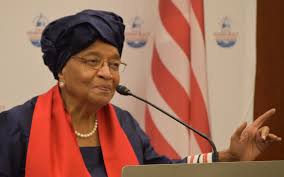
NDI
“The longer the results are being delayed…the more questions will be raised and concerns will deepen,” said Ellen Johnson Sirleaf (right), the former Liberian president and Nobel Peace laureate who was part of the observer mission from the International Republican Institute and the National Democratic Institute.
“It is crucial to see the electoral process to its conclusion, including monitoring any electoral challenges, and installing the legitimate winner to office,” said a joint NDI-IRI preliminary statement. “It is also important to note that the elections, while vitally important, are themselves an indicator of the nature of the broader transitional process in Zimbabwe.”
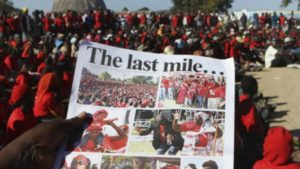
Credit: CFR
The ruling party won large parliamentary majorities in rural areas that have long been its stronghold but where civil society organizations raised concerns over intimidation and vote-buying, the FT adds. In many instances, according to non-governmental organizations, Zanu-PF used distribution of aid, as well as pressure from traditional chiefs, to sway voters.
IRI and NDI reported “numerous incidents” of food and agricultural assistance and “extreme media bias” being used to secure support for ZANU-PF, Bloomberg adds. The European Union said Zimbabwe didn’t achieve a “level playing field” in the presidential and parliamentary elections on Monday.
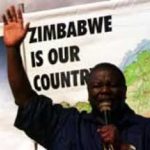
NDI
“The delegation notes several improvements to the electoral process compared to Zimbabwe’s past elections, though equally important problems give rise to deep concerns that the process thus far has not made the mark,” the U.S. observers said.
Rashweat Mkundu, a former director of the Media Institute of Southern Africa, faulted the Electoral Commission in part for the turmoil, The New York Times reports. Its failings, he said, “included poor communication, which created distrust and partly contributed to ongoing opposition disquiet.”
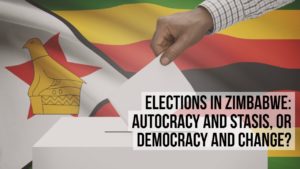 If the MDC had won, it would not be “because the process has been fair,” said Magaisa, a Reagan-Fascell fellow at the National Endowment for Democracy. but because they were “really doing well to fight against the high odds.”
If the MDC had won, it would not be “because the process has been fair,” said Magaisa, a Reagan-Fascell fellow at the National Endowment for Democracy. but because they were “really doing well to fight against the high odds.”
“The credibility of the 2013 harmonized elections is seriously compromised by a systematic effort to disenfranchise urban voters. Up to a million voters were disenfranchised,” said Solomon Zwana, chairman of the Zimbabwe Elections Support Network (ZESN), an indigenous coalition of civil society organizations.
 “When compounded by the massive bias in the state media, the campaign of intimidation in rural areas, the lack of meaningful voter education, the rushed electoral process, and the harassment of civil society leaves the credibility of these elections severely compromised,” he said.
“When compounded by the massive bias in the state media, the campaign of intimidation in rural areas, the lack of meaningful voter education, the rushed electoral process, and the harassment of civil society leaves the credibility of these elections severely compromised,” he said.
Improvements to the electoral process “were likely insufficient to build broad public confidence that voters could make a choice adverse to the ruling establishment without fear of violence or other retribution should the position prevail,” the U.S. institutes said.
“The election failed to meet the mark in a number of ways,” said Johnnie Carson, a former U.S. assistant secretary of state for Africa, who is also part of the IRI-NDI mission.
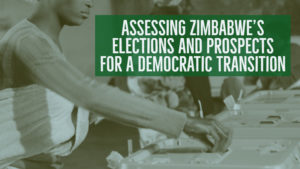 The election has proved to be a charade, as analysts Michelle Gavin and Todd Moss predicted.
The election has proved to be a charade, as analysts Michelle Gavin and Todd Moss predicted.
“Manipulation of the voter roll has been a major feature of election-rigging efforts in Zimbabwe in the past,” they wrote for Foreign Affairs. “This time around, the roll has been has been shrouded in unnecessary secrecy and released for review only after it was too late to correct the many errors that civil society groups say they have found, while government representatives have ignored fair questions about the security of ballots and counting systems.”
Zanu-PF had already won before the first vote was cast, said Derek Matyszak, a Zimbabwe expert at the Institute for Security Studies in Pretoria.
 “The votes in the ballot box probably match those announced,” he said. “To win the elections Chamisa had to look as if he was going to win and they did a good job of creating the impression of momentum… so good that people in Harare and Bulawayo now do not believe the results…
“The votes in the ballot box probably match those announced,” he said. “To win the elections Chamisa had to look as if he was going to win and they did a good job of creating the impression of momentum… so good that people in Harare and Bulawayo now do not believe the results…
“Zanu-PF has basically gotten away with it. Those who think good always triumphs over evil have a hard time swallowing that,” he added.
